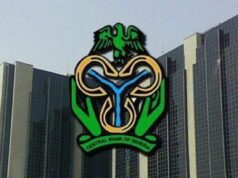MON, MARCH 6 2017-A joint investigation by the Observer, the UK newspaper and journalists from Finance Uncovered, a non-profit organisation based in London discovered that prosecutors in Milan believe two payments of $400 million each were wired through JP Morgan in London as spoils of a huge deal to develop the OPL 245 oil field involving Shell, its joint venture partner, the Italian giant ENI and the Nigerian Federal Government, according to report by the highly regarded UK newspaper, The Guardian.
The report revealed that more than half the money was converted into bags of cash via Bureau de Change in Nigeria, while tens of millions of dollars were wired to buy a private jet and armored cars in the US, according to documents compiled by the prosecutors. The deal was partly negotiated by two former British secret service agents from the M16, John Copleston and Guy Colegate.
According to the report, the astonishing allegations have been made by an Italian prosecutor, Fabio de Pasquale, who spent two years following the money trail surrounding the murky sale of OPL 245, Nigeria’s biggest oil block, estimated to hold about 10 billion barrels of Crude oil: enough to power Africa for seven years.
The OPL 245 licence was awarded in 1998, by Nigeria’s then oil minister, Dan Etete, to a shady new company, Malabu Oil and Gas, in which, it later emerged, he held a significant stake.
But after a new president came to power, Malabu lost the licence and it was assigned to Shell. Later the position reversed and Shell began legal proceedings against the Nigerian government.
Etete was convicted in a Paris court in 2007 for his part in a separate money-laundering scandal. But this did not appear to deter Shell and Eni from continuing to court him at luxury hotels in Europe and Nigeria, according to investors.
After one lunch with Etete in 2009 to discuss his asking price for OPL 245, it is reported that John Copleston copied Guy Colegate, the two former British agents on an email to say it had gone well, helped along by “lots of iced champagne”.
In 2010, negotiations swung Shell’s way when Goodluck Jonathan, an ally of Etete’s, became Nigeria’s president.
The following year, the $1.3bn deal was struck, with Malabu entitled to $1.1bn and the Nigerian government a $210m “signature fee”. Shell and Eni paid the money directly to the Nigerian government. In May 2011, days after the Nigerian government received the money, its officials instructed JP Morgan to transfer the $1.1bn to an account in Switzerland.
According to the Guardian report, whatever the explanation, the transfer immediately ran into difficulties. BSI Lugano, a Swiss bank, rejected the payment, citing Etete’s money-laundering conviction. In August, JP Morgan then made a second attempt via a Lebanese bank to pay the money to Malabu, but this too was rejected. However, a fortnight later JPMorgan was able to transfer the money, in separate tranches of $400m to two Nigerian banks.
“Where all of it ended up will probably never be known. De Pasquale alleges that President Jonathan received some of the money, but he denies the claim.”
Early this month Nigeria’s anti-graft agency, EFCC, filed fresh corruption charges against the two multinational oil firms, Shell and Eni, for their roles in the Malabu $1.1 billion scandal. The charges were filed at the FCT High Court against the oil majors and nine other individuals and firms.
Some of the others charged alongside Shell and Eni are two former Nigerian ministers, Mohammed Adoke (Justice) and Dan Etete (Petroleum), as well as controversial businessman Aliyu Abubakar.
The suspects are accused of, among others, conspiring to defraud the Nigerian government.The new charges are part of an international collaboration to ensure all those who partook in the $1.1 billion OPL 245 scandal are brought to justice.
The OPL 245 oil block is currently owned by the Nigerian government after a temporary court order granted an EFCC application.
Shell and Eni have since appealed the order asking that the block be returned to them.









